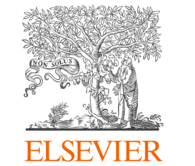Elsevier Donates Unified Data Model to The Pistoia Alliance
New model will ensure data is a ‘common language’ in the research community, removing research bottlenecks and barriers to collaboration
 New York, October 10, 2017--Elsevier, the information analytics business specializing in science and health, has announced it is donating its Unified Data Model (UDM) to The Pistoia Alliance, a global, not-for-profit alliance that works to lower barriers to innovation in life sciences R&D. The UDM is an XML file format originally developed by Elsevier to improve the upload of external data sets into its tools. It will now be developed and extended under the stewardship of The Pistoia Alliance, with the ultimate aim of publishing an open and freely available format for the storage and exchange of drug discovery data. The UDM will become a common model allowing data to be easily shared and integrated between parties. This will greatly accelerate drug discovery research and overcome a shared barrier to collaboration.
New York, October 10, 2017--Elsevier, the information analytics business specializing in science and health, has announced it is donating its Unified Data Model (UDM) to The Pistoia Alliance, a global, not-for-profit alliance that works to lower barriers to innovation in life sciences R&D. The UDM is an XML file format originally developed by Elsevier to improve the upload of external data sets into its tools. It will now be developed and extended under the stewardship of The Pistoia Alliance, with the ultimate aim of publishing an open and freely available format for the storage and exchange of drug discovery data. The UDM will become a common model allowing data to be easily shared and integrated between parties. This will greatly accelerate drug discovery research and overcome a shared barrier to collaboration.
“The absence of universal data standards hurts everybody involved in life science research and development, and is a huge inefficiency that impedes drug discovery,” said Dr. Steve Arlington, President of The Pistoia Alliance. “Life science companies have traditionally developed their own internal infrastructures, which results in a duplication of efforts and in systems that are not interoperable. Collaboration between stakeholders will underpin the future of the life science industry, and overcoming these kinds of barriers is why The Pistoia Alliance was formed. This project will contribute to reducing the time it takes the industry to develop new therapeutics; we encourage our members to become involved in the development of the UDM and create a standard that helps move research forward.”
A lack of well-defined data definitions hampers research efforts and collaboration initiatives, within and between organizations. The complexity of integrating data between horizontal systems (e.g., in-house Electronic Lab Notebook (ELN)) and vertical systems (e.g., ELN used by a CRO or academic partner), also significantly adds to the cost of research projects. The Pistoia Alliance’s UDM steering committee, which includes Elsevier representatives, will address these issues by creating open data standards for experimental information about compound synthesis and biological testing. Currently, converting this type of reaction data for a single data source can take considerable time.
“Data is the lifeblood of life science research today, and removing the hurdles to sharing and using data is critical in supporting the industry to deliver innovative and life-saving therapies,” commented Tim Hoctor, Vice President, Professional Services, Elsevier. “Elsevier’s tools are designed to accelerate research and development in the life sciences, and contributing to open source standards is fundamental in unleashing the full potential of technology to enable innovation. We are therefore very pleased to donate the UDM model in support of this cause. The Pistoia Alliance’s members represent all the major pharmaceutical companies and service providers, which made it a perfect choice to further develop the work that Elsevier initiated on the UDM.”
In 2013, Elsevier co-developed the UDM with Roche, which was integrating proprietary reaction information in Reaxys, Elsevier’s premier chemistry database. The UDM is based on a well-documented domain model which would provide a minimum information model for the implemented experiment types. No single organization can create an industry standard by itself; the UDM model can instead be used a ‘starting point’ for informatics systems that are developed by both life sciences companies and software vendors, providing a standard platform for implementing experimental business rules and protocols.
The Pistoia Alliance, supported by Elsevier, will publish the first version of the extended UDM in Q1 2018. The Pistoia Alliance will then further develop the model in response to members’ feedback.
For more information on the UDM and how to get involved in this project, please visit: http://pistoiaalliance.org/projects/udm
About The Pistoia Alliance
The Pistoia Alliance is a global, not-for-profit members’ organization made up of life science companies, technology and service providers, publishers, and academic groups working to lower barriers to innovation in life science and healthcare R&D. It was conceived in 2007 and incorporated in 2009 by representatives of AstraZeneca, GSK, Novartis and Pfizer who met at a conference in Pistoia, Italy. Its projects transform R&D through pre-competitive collaboration. It overcomes common R&D obstacles by identifying the root causes, developing standards and best practices, sharing pre-competitive data and knowledge, and implementing technology pilots. There are currently over 80 member companies; members collaborate on projects that generate significant value for the worldwide life sciences R&D community, using the Pistoia Alliance’s proven framework for open innovation.
About Elsevier
Elsevier is a global information analytics business that helps institutions and professionals progress science, advance healthcare and improve performance for the benefit of humanity. Elsevier provides digital solutions and tools in the areas of strategic research management, R&D performance, clinical decision support, and professional education; including ScienceDirect, Scopus, SciVal, ClinicalKey and Sherpath. Elsevier publishes over 2,500 digitized journals, including The Lancet and Cell, more than 35,000 e-book titles and many iconic reference works, including Gray's Anatomy. Elsevier is part of RELX Group, a global provider of information and analytics for professionals and business customers across industries. www.elsevier.com
- Login to post comments